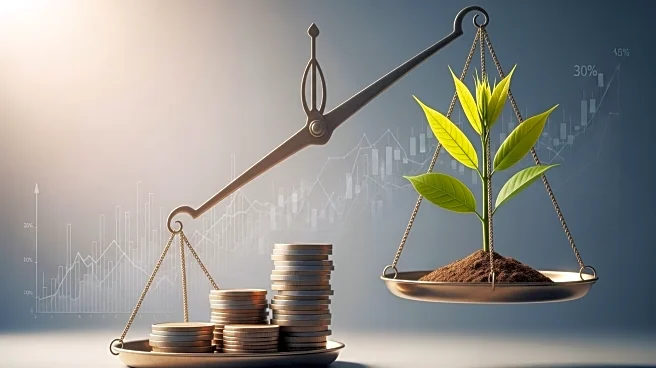What's Happening?
Economists are reassessing their predictions regarding the impact of President Trump's tariffs, which were initially expected to lead to stagflation and recession. Contrary to these forecasts, the U.S. economy is growing at nearly 4%, with inflation under 3% and strong employment figures. The tariffs have generated significant tax revenue, prompting discussions of potential taxpayer bonuses. Economists are now questioning the accuracy of their models and the influence of political biases on their predictions.
Why It's Important?
The unexpected economic outcomes challenge conventional economic theories and highlight the need for a reevaluation of predictive models. The tariffs' success in generating revenue without causing the predicted economic downturn suggests that the U.S. may have been receiving unfavorable trade deals. This development could influence future trade policies and economic strategies, potentially benefiting U.S. manufacturers and creating jobs. The situation underscores the importance of objective analysis in economic forecasting.
What's Next?
Economists may conduct further research to understand the discrepancies between predictions and actual outcomes. This could lead to adjustments in economic models and forecasting methods. Policymakers might consider expanding tariff policies or exploring new trade agreements based on the positive results. The political implications are significant, as economic success could bolster support for President Trump's policies.
Beyond the Headlines
The situation raises questions about the role of political biases in economic forecasting and the need for objective analysis. It also highlights the adaptability of markets and the potential for policy-driven economic growth. The long-term impact on trade relations and global economic dynamics remains to be seen.












